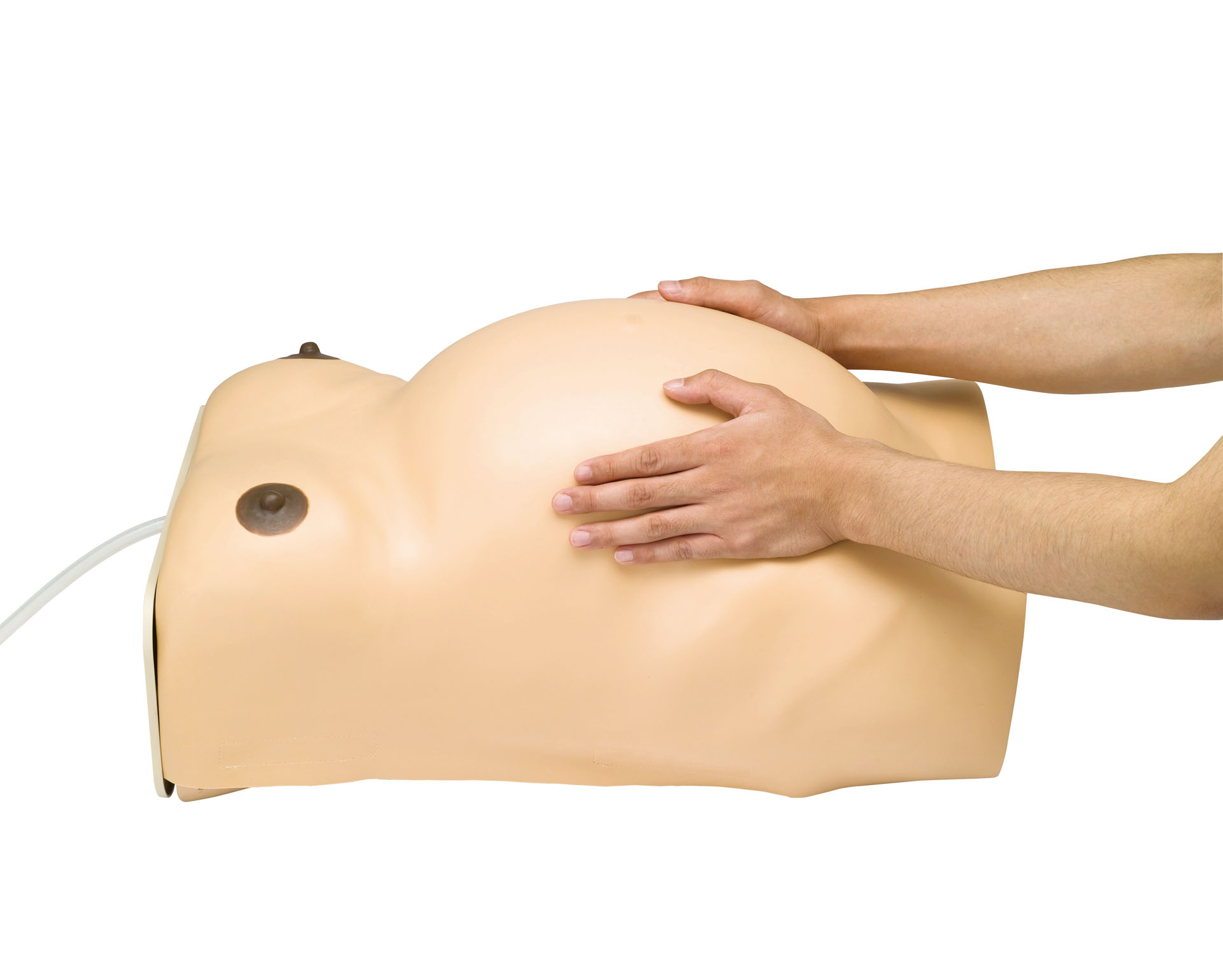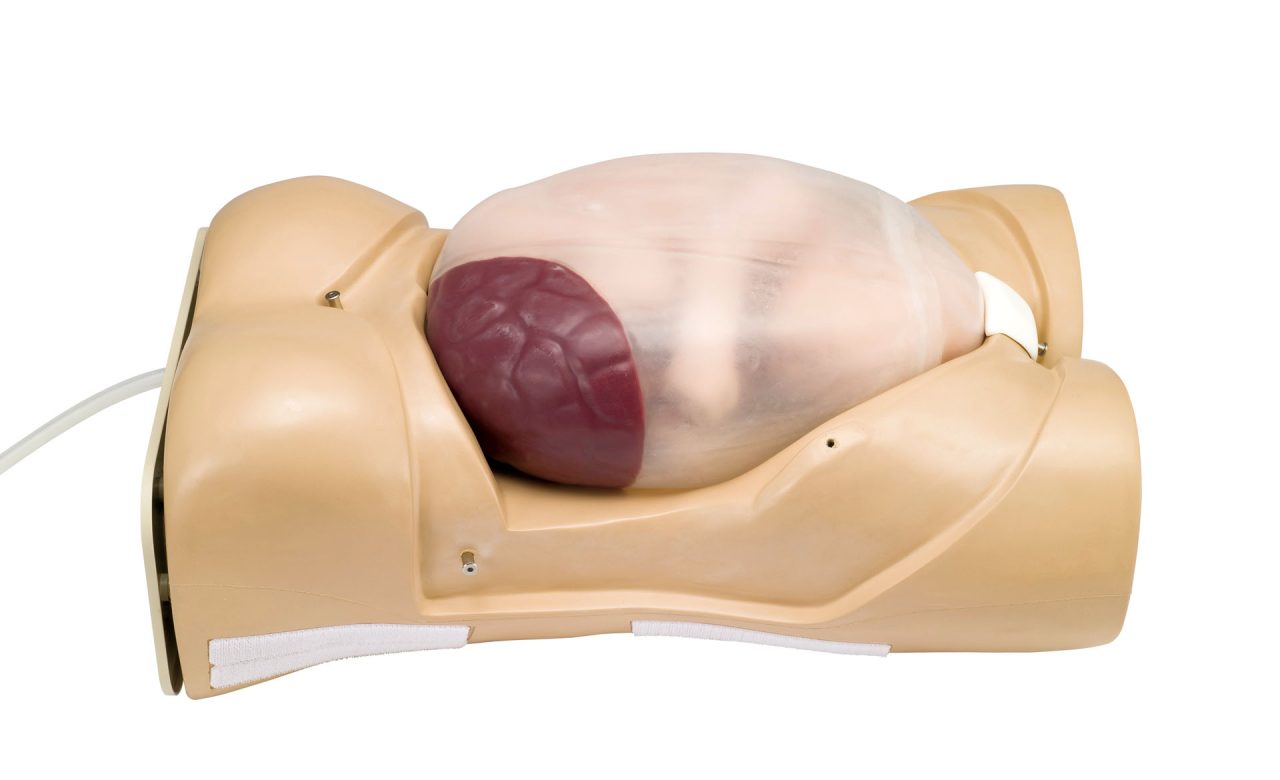
Practical training and hands-on learning is integral to medical education. The use of simulators and task trainers is an incredibly effective and engaging way of bringing curriculums to life and preparing students for their future careers in healthcare and medicine.
As well as helping students practice essential care-based and clinical skills, it also exposes them to risks, challenges and worst-case scenarios in a realistic and safe, controlled setting.
As a leading provider of medical equipment for over 100 years, we only supply products that are of the highest quality and developed using the same care and attention to detail that we adopt when manufacturing in-house.
Highly realistic maternity model for antenatal care
This includes several items from the Koken Maternity and Baby Care range. As an excellent all-round simulator for antenatal care, the AK043N Maternity Model is one of the most sought after items in the Koken range.
It has been available in the UK exclusively through Adam,Rouilly since 1999 and was improved in 2018 to feel even more lifelike, further enhancing the learning experience for students.
The model uses silicone to closely resemble human skin, with a soft, stretchable abdominal wall and pelvis anatomy for incredibly realistic palpation and checking of landmarks.
Inside the abdomen is a full-term fetus, cocooned in an air-filled amniotic sac, to facilitate simulation of the four non-invasive Leopold Manoeuvres for determining the position of the baby and measuring of the uterine fundal height.
The sac can be inflated and the air pressure adjusted to modify the sensation and create more varied scenarios where palpation is different or more difficult.
Learning is further brought to life through the internal synthesizer which mimics the realistic heartbeat sound of an unborn baby. This allows trainers to practice auscultation using a Traube stethoscope or via a built-in loudspeaker.
The volume and speed of the heartbeat is adjustable to replicate different scenarios that might present in antenatal clinics.
Tariq Shahab, Adam,Rouilly Director of Sales and Marketing, said: “Customers like the AK043N Maternity Model because it covers all the required skills for antenatal care while being incredibly realistic and easy-to-use.
“As well as benefiting from the authentic look and feel of the model which enables trainees to practice feeling, measuring and determining the position of a fetus, they can also practice listening to the fetal heartbeat, due to the added technological features.
“The model’s durability and ease of use make it an affordable, yet highly effective, teaching aid, preparing students for a wide variety of real-life challenges in as realistic a setting possible.”

The benefits for teaching institutions
Recent surveys and investigations by various healthcare bodies highlight just how important simulation training is in midwifery services.
Using a lifelike simulator, either on its own or as part of Standardised Patient training, adds depth to practice scenarios and helps trainees develop increased confidence.
The more realistic and versatile the model, the more equipped students will be when faced with a variety of real-life challenges during their future careers.
It can be used to support the teaching of various healthcare, obstetrics, gynaecology and midwifery qualifications from T Levels to OSCEs and beyond.
Improving standards in maternity care
The quality and safety of maternity services in the UK has been a central focus of national policy in recent years.
A 2024 programme of inspections by the Care Quality Commission (CQC) found continued concerns about the quality of NHS maternity services, with common issues impacting safety across the country.
This evidenced the need for ‘urgent action’ on issues such as poor management of incidents with limited learning when things go wrong, failure to ensure safe and timely assessment, unsuitable estates and access to essential equipment.
Of 131 locations inspected, almost half were rated as requiring improvement (36%) or inadequate (12%).
In its annual report for 2023/24, the Maternity and Newborn Safety Investigations identified five themes from the 1000 safety recommendations it made to trusts from 795 referred cases.
These were:
- Clinical assessment
- Fetal monitoring
- Escalation
- Clinical oversight
- Risk assessment
Various initiatives and policies have been implemented to improve maternity services in recent years, including:
- The NHS Long Term plan to achieve 50% reductions on the 2010 rates of stillbirths, neonatal and maternal deaths and brain injuries occurring during or soon after birth, by 2025
- The Maternity Transformation Programme and three-year delivery plan for maternity and neonatal services
- Avoiding Brain Injury in Childbirth programme to support maternity services to improve and personalise care in labour to reduce risks of avoidable harm
- The creation of a special data taskforce to better monitor patient safety in maternity and neonatal care nationwide
Enhancing medical education with simulation training
Using lifelike simulators as part of the curriculum can enhance learning and help students feel more confident in the skills they are acquiring. This includes patient handling, communication and gaining trust, as well as the essential clinical skills and scenarios.
For more information about our maternity models and simulators, please contact the Adam,Rouilly Sales Team, who can advise on the best items for specific courses and qualifications, and help design simulation suites for medical education.